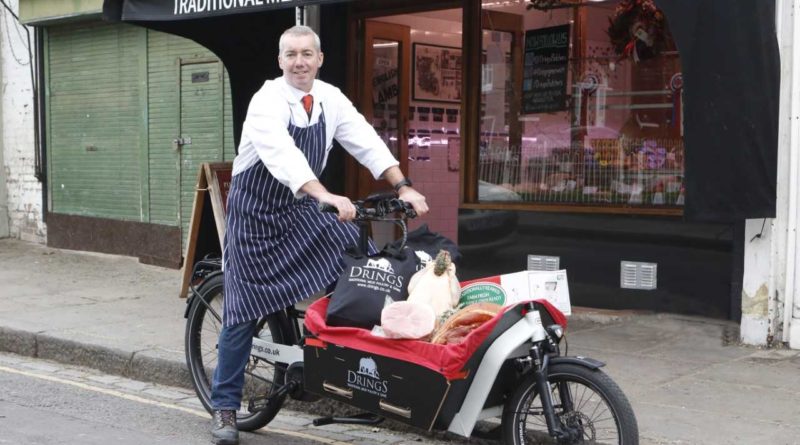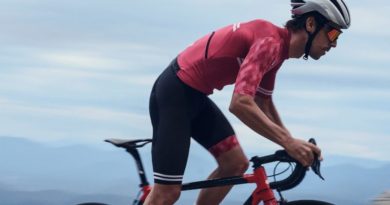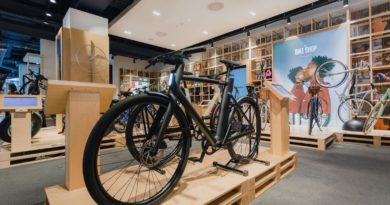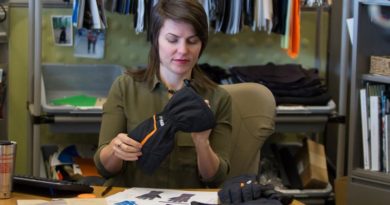E-cargo bike saves money, reduces delivery times and cuts CO2 & particulate emissions for London business
A butcher in the borough of Greenwich has cut its carbon dioxide (CO2) emissions by using an electric cargo bike for local deliveries, as part of a six-month trial, delivered by the walking and cycling charity Sustrans.
The project was commissioned by the Royal Borough of Greenwich, with the environmental impact of the van and bike being monitored over two-fortnight periods, from 27 June to 10 July and 25 July to 8 August. During the trial, 95% of local deliveries under 5 km were made by the e-cargo bike, travelling over 200km in total, while the van was still used for longer journeys.
CO2 emitted fell by an estimated 75%, with the e-cargo bike releasing less than 0.5 kg into the atmosphere* . This equates to a potential annual saving of 2,171kg.
When comparing like-for-like journeys, the e-cargo bike regularly came out as the faster and more economical mode of transport, especially during peak rush hour. A single delivery by bike to a café in Blackheath Village, emitted just 4g of CO2 compared to 614g by the van, a 99% decrease. In addition, the journey was over four minutes quicker and cost as little as £1.60, just over half the price of the same journey made by van.
Additional benefits of switching to an electric cargo bike included:
· Lower costs for deliveries compared to motor vehicle, including savings of £829.14 on fuel per year;
· Employees burned an additional 2,500 kcals collectively over two-weeks;
· More flexible delivery hours as the bike was not effected by rush hour traffic;
· On time deliveries as the cargo bike took advantage of quieter routes which restricted motorised trade vehicles;
· More staff could make deliveries as no drivers licence is needed to ride a bike;
· Positive image as the bike aligns with ethical consumer trends.
The project also revealed the long term financial benefits of switching to pedal power, with a new van costing on average £25,000 and deprecating in value over time, while a new e-cargo bike is priced comparatively less at £5,000.
Additionally, switching deliveries to cleaner modes of transportation such as e-cargo bike can help businesses take radical action to combat air pollution at a local level.
Air pollution is one of the leading environmental public health crises in the UK today[i] and contributes to the death of 9,500 people in the city every year on average[ii]. Road transport is responsible for 80% of the pollution where legal limits are being broken.[iii]
Sustrans is calling on the UK Government to deliver additional demonstration projects and build the evidence to show businesses the benefits and competitiveness of cargo bikes for transporting goods across a whole range of applications in cities, whilst being better for the environment and people.
The cargo bike was received on loan from Greenwich Council and the butcher’s is planning to purchase its own e-cargo bike for future deliveries.
Businesses across the UK, such as Sainsbury’s, Zedify and DHL, are tapping into the growing consumer trend for ethical and sustainable produce and have also adopted e-cargo bikes as an efficient and environmentally friendly form of delivering goods.
After successful campaigning from the Bicycle Association, the government recently announced a £2M fund to push forward e-cargo bike take up.
Comments
Sustrans Director, Matt Winfield said: “This trial is a great example of the benefits of e-cargo bikes to other small businesses in London and clearly demonstrates that a cargo bike can be a faster and more economical mode of transport. This is because they have the advantage of travelling on quieter routes away from rush hour traffic, allowing the business to save money on fuel and provide customers with more on-time and flexible deliveries. This, coupled with the hugely positive environmental and health impact make it an obvious transport solution to motor vehicles.
“We believe that one of the biggest barriers to the wider uptake of cargo bikes is a level of scepticism of their capabilities by businesses. With leadership and urgent action, e-cargo bikes could make cycling a realistic transport choice for many companies and help to tackle the Capital’s chronic air pollution crisis, while reducing congestion on our roads.
“Alongside support for purchasing e-cargo bikes, the UK Government needs to prioritise investment in high-quality cycling and walking infrastructure and engagement initiatives to maximise the safety of cycling and ease of use of all types of bikes.”
Drings owner, Michael Jones: “I thoroughly enjoyed working with Sustrans and Greenwich in changing the way we make our deliveries. Plus our customers like seeing the butchers on the bike too. The bike is also just as efficient at making shorter deliveries and I haven’t had to fill the van up in eight weeks, proving that making the switch from diesel to e-cargo bike makes both business and environmental sense.”
Councillor Denise Scott McDonald, Cabinet Member for Air Quality, Public Realm and Transport, said: “Greenwich is one of only a few Beacon Authorities for air quality, and this electric bike trial is one of a range of initiatives to tackle air pollution. Many of our businesses use cars and vans to deliver goods to their customers locally, and if we could transform these short trips into zero-emission cargo bike journeys, it would further improve air quality around the borough.”
Notes
Deliveries made by cargo bike and van were monitored using a GPS tracking device and tracked distance, the route taken and timings travelled during this period. CO2 was estimated through the distance data obtained from the GPS unit installed in the van and current data available about CO2 emissions for the VW Transporter 1.9 TDi[1].
* CIN checked in with Sustrans for details of the ‘in-usage’ study and was advised if the -e-cargo bike had been charged from a CO2 neutral electricity provider, the CO2 emissions could have been zero.



